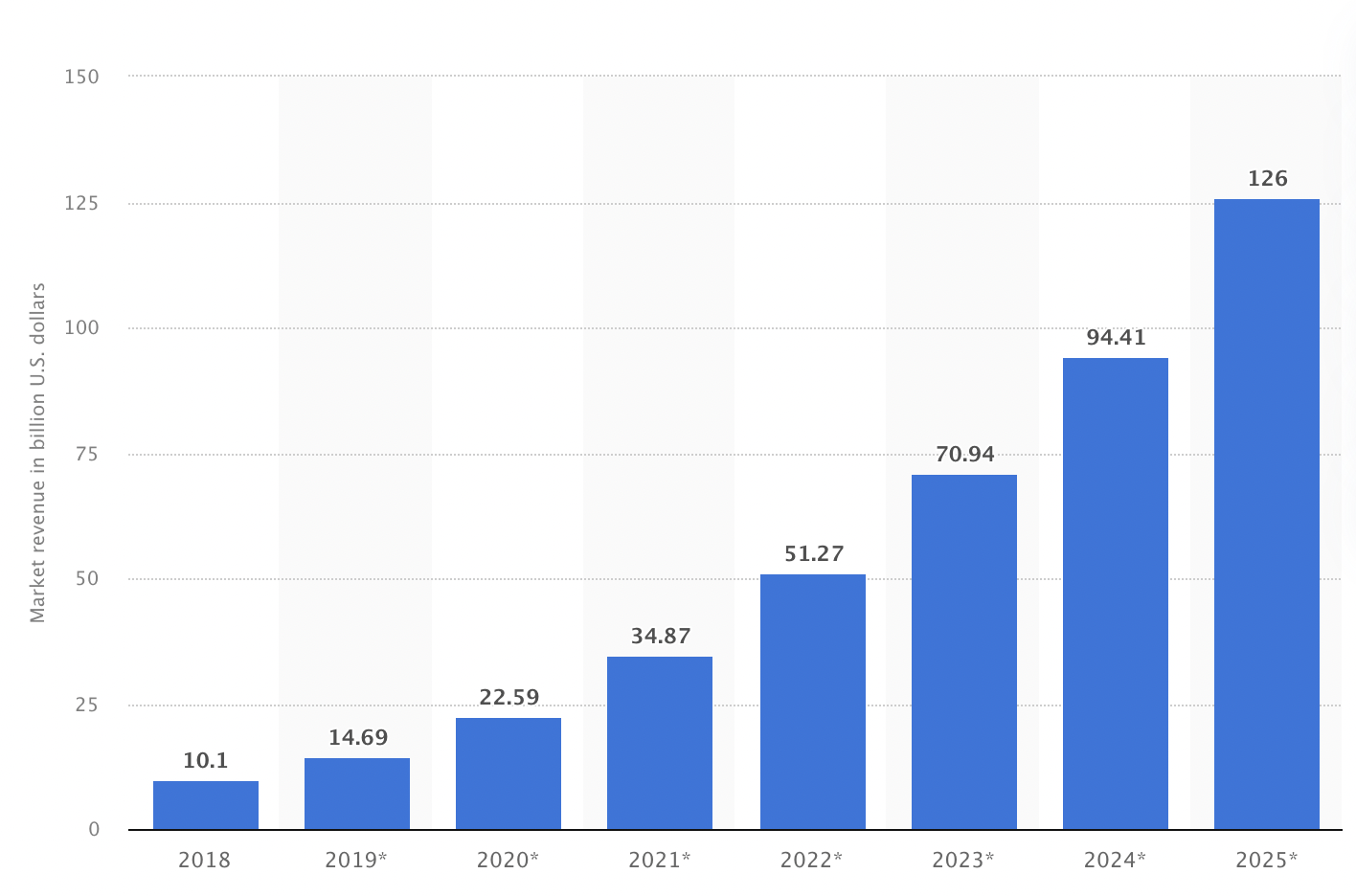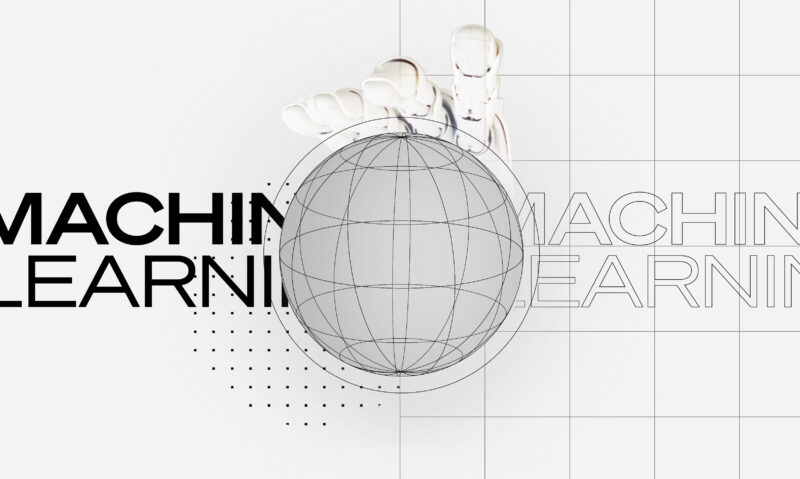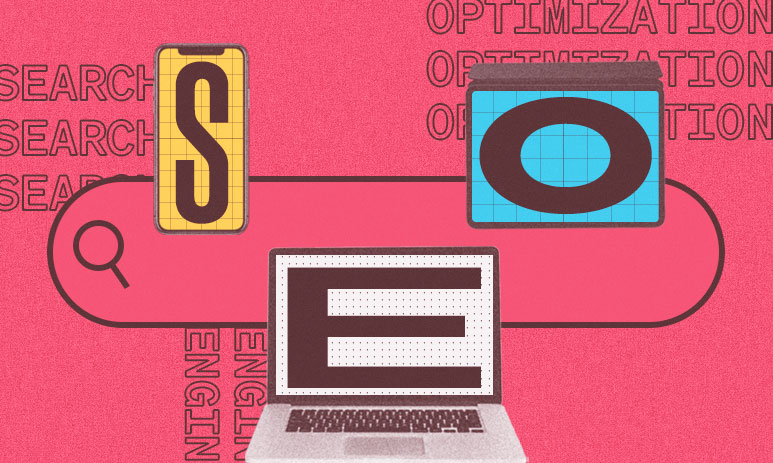The AI Revolution: Unveiling the Future of SEO and Its Impact on Your Business
Related Services
Credits
Writer: Daniel Kremsa
Editor: Viri Serrano
Designer: Mark Yoder

Prepare for a seismic shift in the world of SEO as artificial intelligence (AI) takes the industry by storm.
Stay ahead of the curve and discover how AI revolutionizes traditional marketing practices, from data analysis to content creation. This article will guide you through the impact AI has on SEO and its various applications, along with a deep dive into the opportunities and challenges AI brings to the table. You’ll also find insights from industry experts, practical case studies, and an exploration of ethical considerations in AI-driven SEO.
In this article, we’ll cover the following key topics:
- The New Frontier: AI Takes SEO by Storm
- Unleashing the Power of AI-Driven SEO: Practical Examples Across Industries
- The Double-Edged Sword: Weighing the Pros and Cons of AI in SEO
- The Road Ahead: Bold Predictions for the Intersection of SEO and AI
- Case Studies: Real-World Applications of AI in SEO
- Ethical Considerations and Responsible AI
- Industry Expert Opinions: Quotes and Insights
Delving into these critical areas, we aim to empower marketing decision-makers with the knowledge needed to embrace the future and maintain a competitive edge. Let’s embark on this journey together and explore how AI transforms the SEO landscape for businesses across various industries.
The New Frontier: AI Takes SEO by Storm
Sundar Pichai, CEO of Alphabet and Google, said in an interview with Verge:
“AI is one of the most profound things we’re working on as humanity. It’s more profound than fire or electricity.”
This quote highlights the significance of AI and its potential to reshape industries, including SEO and digital marketing. As AI continues to advance and become more sophisticated, it’s transforming the SEO landscape in ways that were once unimaginable. AI-powered tools are automating and optimizing processes like never before, and the adoption of Ai technology has more than doubled since 2017, according to a McKinsey report. This rapid growth signifies the increasing importance of AI in various industries, including marketing and SEO. As more businesses recognize the potential of AI to streamline operations and improve efficiency, its impact on SEO is becoming increasingly evident.

Industry experts, such as Rand Fishkin and Danny Sullivan, echo Sundar Pichai’s sentiments, emphasizing the transformative nature of AI in SEO. They stress the importance of understanding user intent and adapting strategies to cater to an AI-driven search environment. As AI becomes more integrated into the fabric of our everyday lives, marketers must also consider how their brands will evolve in this AI-first world.
Unleashing the Power of AI-Driven SEO: Practical Examples and Case Studies Across Industries
Artificial intelligence is rapidly changing the SEO landscape, empowering businesses to optimize their online presence with unprecedented efficiency. To illustrate how AI-driven SEO unlocks new opportunities and transforms marketing practices, let’s dive into some practical industry examples.
E-commerce
AI-driven SEO tools help businesses analyze customer behavior and preferences, improving their ability to craft tailored marketing campaigns. In a recent study, AI-driven SEO campaigns led to a 45% increase in organic traffic and a 38% increase in conversion rates for e-commerce businesses (Source: BrightEdge). AI can predict which products will likely be popular based on historical data and consumer trends, allowing e-commerce retailers to optimize product listings and generate highly targeted content that drives conversions.
Healthcare
AI-powered SEO can significantly enhance healthcare providers’ online visibility by analyzing vast amounts of data from patients and medical professionals. According to Pew Research Center, 77% of patients use search engines to research health information, making AI-driven SEO crucial for healthcare organizations. AI can help healthcare organizations create informative and engaging content that addresses patients’ concerns, ultimately increasing trust and attracting new patients.
Real Estate
In the real estate industry, AI-driven SEO can streamline the process of property search and discovery. AI tools can identify patterns and preferences, enabling real estate businesses to optimize their websites and generate highly targeted content that appeals to potential buyers or renters.
Tech Industry
In the tech industry, AI-driven SEO is a game-changer. With the tech space being incredibly competitive and continuously evolving, staying visible online is crucial. AI tools are enabling tech companies to analyze vast amounts of data, understand trends, and craft data-driven SEO strategies. For instance, AI can analyze user behavior, site performance, and backlink profiles to recommend optimizations for increased organic visibility.
Furthermore, in an industry where innovative products and services are frequently launched, AI can predict potential trending keywords based on industry trends and historical data, allowing tech companies to produce content that effectively captures these emerging opportunities.
Non-Profit Sector
In the non-profit sector, AI-driven SEO can be a game-changer in the way organizations connect with potential donors, volunteers, and those in need of their services. Analyzing large volumes of search data, AI can help non-profits understand the concerns and interests of their target audiences and create meaningful, engaging content that resonates with them.
For instance, an environmental non-profit can use AI to identify trending environmental topics and craft SEO-optimized content around them, attracting traffic from users interested in these issues. Furthermore, AI can enhance the effectiveness of fundraising campaigns by identifying keywords and phrases that elicit emotional responses and increase the likelihood of donations.
Travel and Tourism
AI-powered SEO can potentially revolutionize how travel and tourism businesses connect with customers. According to Adobe, 57% of travel companies plan to increase their investments in AI-driven personalization over the next few years. AI can help travel companies create highly targeted marketing campaigns that cater to individual tastes, significantly boosting customer engagement and driving bookings.
Case Study: CanIRank
CanIRank, an AI-driven SEO software, helped a B2B SaaS company achieve a 400% increase in organic traffic within just six months. The software provided actionable insights and recommendations, allowing the company to optimize its content and link-building strategies.
Matt Bentley, CanIRank’s CEO, stated, “Our AI-driven approach allows us to deliver highly accurate and personalized SEO recommendations, which leads to better results for our clients.”
Case Study: MarketMuse
MarketMuse, an AI-powered content planning and optimization tool, helped marketing software company CoSchedule increase their organic traffic by 594% within a year.
Garrett Moon, CoSchedule’s CEO, praised the AI-driven platform, saying, “MarketMuse has helped us improve our content marketing strategy and achieve remarkable results.”
Case Study: BrightEdge
BrightEdge, an AI-powered SEO platform, helped healthcare company McKesson improve their organic search rankings and increase organic traffic by 60% within 12 months.
McKesson’s Digital Marketing Manager Wendy Gooseberry highlighted the impact of BrightEdge’s AI-driven recommendations: “BrightEdge’s platform allowed us to make data-driven decisions that dramatically improved our search performance.”
Case Study: Albert
Harley-Davidson of New York City used Albert, an AI-driven marketing platform, to optimize their online marketing campaigns. The result was a 2,930% increase in leads within three months.
Asaf Jacobi, President of Harley-Davidson NYC, stated, “Albert’s AI-driven insights have helped us achieve unprecedented success in our online marketing efforts.”
Case Study: WordLift
Online magazine Linux Handbook used WordLift, an AI-powered SEO tool, to improve their content optimization efforts. Within six months, they saw a 77% increase in organic traffic. Abhishek Prakash, Founder of Linux Handbook, said, “WordLift has been instrumental in helping us optimize our content for search engines and improve our online visibility.”
These case studies highlight the potential of AI-driven SEO to deliver impressive results across various industries, offering valuable insights and inspiration for marketing professionals looking to harness the power of AI in their own SEO strategies.
These case studies showcase the transformative impact that AI-driven SEO can have on businesses, regardless of their industry or size. Learning from the experiences and successes of these companies, marketing professionals can better understand the potential of AI-driven SEO and consider how to apply similar strategies to their own organizations. Leveraging the power of AI and staying informed about the latest developments in the field, marketing professionals can maintain a competitive edge in an ever-evolving digital landscape.
Challenges, Solutions, and Ethical Considerations for AI Adoption in SEO
While AI-driven SEO offers numerous benefits, it is important to acknowledge and address marketing professionals’ challenges when adopting AI technologies.
In this section, we delve into the most common challenges and provide practical solutions and industry insights to help you overcome these obstacles and successfully implement AI-driven SEO strategies.
Budget Constraints
Many organizations, especially small businesses, may struggle with allocating the necessary budget to invest in AI-driven SEO tools and resources.
Solution: Consider starting with cost-effective or free AI-driven SEO tools available in the market. These tools can still provide valuable insights and recommendations to optimize your SEO efforts. As your business grows, you can invest in more advanced AI-driven SEO solutions to enhance your strategies further.
Lack of In-House Expertise
Implementing AI-driven SEO strategies may require specific skills and knowledge that your current team may not possess.
Solution: Invest in training and upskilling your marketing team to better understand and utilize AI-driven SEO tools. Alternatively, consider partnering with external agencies or consultants specializing in AI-driven SEO to bridge the knowledge gap and ensure successful implementation.
Resistance to Change
Organizations might face internal resistance to adopting new technologies like AI, as employees may fear job displacement or have concerns about the effectiveness of AI-driven SEO strategies.
Solution: Clearly communicate the benefits of AI-driven SEO to your team and involve them in the decision-making process. Emphasize that AI will augment their work, allowing them to focus on higher-value tasks rather than replace their roles.
Choosing the Right AI-Driven SEO Tools
With the growing number of AI-driven SEO tools available, marketing professionals may find it challenging to select the right solution for their specific needs.
Solution: Research and compare various AI-driven SEO tools, focusing on their features, pricing, and case studies. Contact your network for recommendations, and consider utilizing trial periods or demos to evaluate which tools best suit your organization’s needs and goals.
Balancing Automation and Human Touch
While AI-driven SEO can provide exceptional automation and efficiency, maintaining authenticity and a human connection in your content is crucial for building trust with your audience.
Solution: Leverage AI-driven SEO tools to automate data analysis, keyword research, and other repetitive tasks. However, ensure that human creativity and empathy remain at the forefront of your content creation process, balancing automation and the human touch.
By addressing these challenges and implementing the suggested solutions, marketing professionals can successfully adopt AI-driven SEO strategies and unlock the full potential of AI technology in their marketing efforts. If committed to embracing change and staying informed about the latest developments in AI and SEO, marketers can maintain a competitive edge in an ever-evolving digital landscape.
Ethical Considerations and Responsible AI in SEO
As we embrace AI-driven SEO, it’s crucial to address the ethical considerations that come with it. From a seasoned SEO agency owner and marketing manager’s perspective, we must ensure that our AI-driven strategies align with ethical practices and responsible AI guidelines. Let’s discuss some key ethical aspects of AI-driven SEO and explore how to incorporate them into our marketing strategies.
- Transparency and Accountability
It’s important to be transparent about using AI in your SEO strategies within your organization and with your customers. Make sure that you understand how the AI tools you use work, and be accountable for the decisions they make.
Action Steps:
- Choose AI-driven SEO tools that provide clear explanations of their algorithms and methodologies.
- Communicate openly with your team and clients about the role of AI in your SEO efforts.
- Data Privacy and Security
The AI-driven SEO tools you use may collect and process vast amounts of data. Ensure that you handle this data responsibly, complying with relevant data privacy regulations and maintaining the trust of your clients and customers.
Action Steps:
- Develop and implement data privacy and security policies within your organization.
- Choose AI-driven SEO tools that adhere to industry-standard data privacy and security practices.
- Avoiding Bias and Discrimination
AI algorithms can inadvertently perpetuate existing biases and stereotypes, which may lead to unfair or discriminatory outcomes. As responsible marketers, we must ensure that our AI-driven SEO strategies promote fairness and inclusivity.
Action Steps:
- Regularly audit your AI-driven SEO tools for potential biases and address any issues promptly.
- Encourage diversity and inclusivity in your content creation process, considering different perspectives and catering to a wide range of audiences.
- Responsible Content Generation
AI-generated content has the potential to mislead or manipulate audiences. As ethical marketers, we must balance leveraging AI for content creation and maintaining authenticity and quality.
Action Steps:
- Use AI-driven SEO tools as a starting point for content generation, but always review and edit the content to ensure accuracy, relevance, and quality.
- Avoid using AI-generated content in a deceptive or manipulative manner, prioritizing transparency and authenticity.
Considering these ethical aspects and incorporating responsible AI practices into your AI-driven SEO strategies, you can create a solid foundation for long-term success. Prioritize ethical considerations, and you’ll improve your marketing strategies and build trust and loyalty with your clients and customers.
The Road Ahead: Bold Predictions & Industry Insights for the Intersection of SEO and AI
As AI continues transforming the SEO landscape, it’s crucial to understand its impact on search engines and how industry leaders like Google perceive this technological shift. Let’s explore this relationship from a seasoned SEO agency owner and marketing manager’s perspective, discussing the role of AI in search engine algorithms and recent statements from top executives at Google.
AI and Search Engine Algorithms
AI plays an increasingly important role in how search engines rank websites and deliver search results. Google’s RankBrain, for example, is an AI-driven component of their search algorithm that helps process complex search queries and improve search result relevance.
Key Takeaways:
- Stay current with advancements in search engine algorithms and their use of AI.
- Adapt your SEO strategies to align with these algorithmic changes, ensuring your content remains relevant and visible.
Google’s Perspective on AI-Driven SEO
Google has acknowledged the potential of AI in transforming the SEO industry, with top executives like Sundar Pichai, CEO of Alphabet (Google’s parent company), emphasizing the role of AI in improving search results and user experience. However, Google also stresses the importance of maintaining high-quality, authentic content and avoiding deceptive or manipulative SEO tactics.
Key Takeaways:
- Embrace AI-driven SEO while adhering to Google’s guidelines for quality and authenticity.
- Focus on creating valuable, engaging content that genuinely addresses users’ needs and interests.
Increased Collaboration Between AI and Human Creativity
As AI continues to advance, we’ll see increased collaboration between AI-powered tools and human creativity. Marketers will leverage AI to automate mundane tasks while focusing on adding a personal touch and human connection to their content.
Enhanced Voice and Visual Search Optimization
With the growing popularity of voice assistants and visual search, AI-driven SEO will need to evolve to optimize content for these new formats. This will result in a more seamless and accessible user experience.
AI-Powered Personalization in User Experience
AI will enable businesses to create highly personalized user experiences on their websites. AI can tailor content, navigation, and recommendations to individual users by analyzing user behavior and preferences, leading to higher engagement and conversion rates.
Greater Emphasis on Data Privacy and Security
As AI collects and processes more data than ever, businesses must prioritize data privacy and security. Compliance with regulations like GDPR and CCPA will become increasingly important, and transparent data-handling practices will be crucial in building customer trust.
AI as a Catalyst for Innovation in SEO
As AI revolutionizes the SEO industry, businesses embracing this technology and adapting their strategies will have a competitive advantage. AI will act as a catalyst for innovation, pushing the boundaries of what’s possible in SEO and opening up new opportunities for businesses to connect with their audiences.
Businesses can maintain a competitive edge in an ever-changing digital landscape by staying informed about the latest developments in AI and SEO, and embracing the opportunities and challenges that come with this technological revolution. By adopting AI-driven SEO strategies and staying agile, organizations can enhance their online visibility and drive growth and success in the years to come.
Conclusion
As we’ve explored in this article, the AI revolution is profoundly transforming the world of SEO, reshaping industries, and offering exciting opportunities for businesses to maintain a competitive edge. Staying informed about the latest developments in AI and SEO, and embracing the opportunities and challenges that come with this technological revolution, marketing executives and directors can enhance their online visibility and drive growth and success in the years to come.
At Pastilla, we pride ourselves on staying at the forefront of these advancements, helping our clients navigate the ever-changing landscape of SEO and digital marketing. Our team of seasoned professionals is committed to delivering cutting-edge strategies that leverage the power of AI to optimize your online presence and drive results. Let us help you seize the opportunities presented by AI-driven SEO and propel your business into the future. Contact us today to learn more about our innovative marketing services and how we can support your success in this new frontier of digital marketing.
Contact us today to learn more about our innovative marketing services and how we can support your success in this new frontier of digital marketing.


